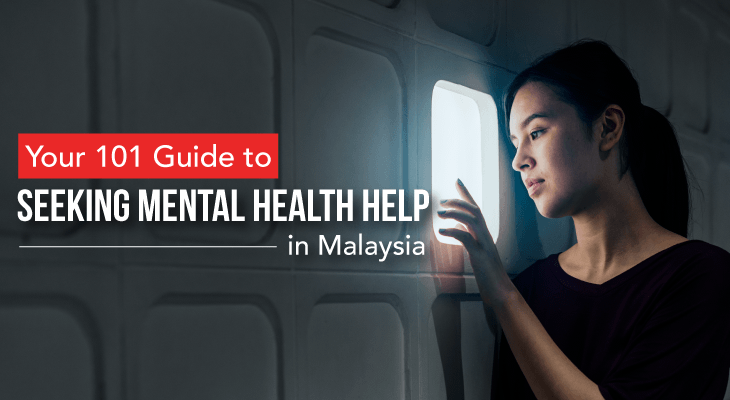We Need to Talk About Mental Health
If the rise of college students afflicted by mental health is a breaking news to you, read on to find out more about the prevalence of anxiety disorders.
Updated 20 Mar 2017
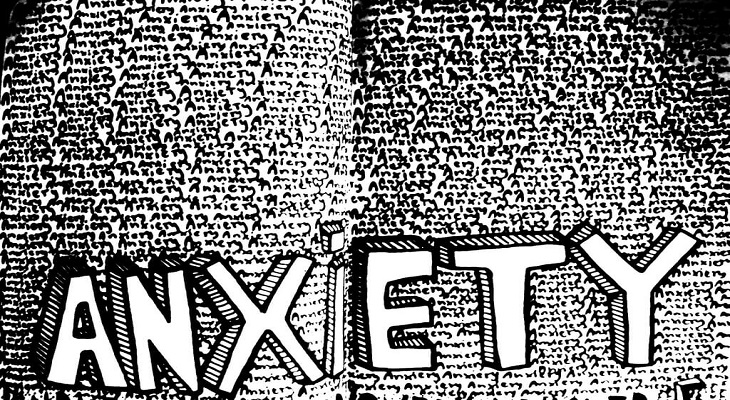
As a student bracing through college to discover yourself and figure life out, you may also find yourself taking a crack at staying healthy. From dumbbell racks and squats to the magical fluid of acai berry juice (all for the promise of chisseled abs), you’re probably also taking hypochondriac active interventions against chronic conditions (read: cancer, diabetes, heart disease).
But while you go-all-out on your physical health, you may have unintentionally left your mental health unattended in the basement. It’s a no brainer to fathom the fact that we all have mental health, much like how we all have physical health.
It then remains a perplexing puzzle: why are we so reluctant to talk about mental illness as we do about physical illness? Why do we fuss over a sore throat or a cold, but casually dismiss anxiety and depression?
As an effort to demystify the common misconceptions around mental health (and to hop on the bandwagon of May as the Mental Health Month), we’ll be shedding the spotlight on anxiety disorder – now the No.1 mental health issue plaguing college students, knocking even depression into the number two slot.

#1. Anxiety isn’t a “real” illness
Myth:
Some people are just worrywarts, and there’s nothing that can really make any difference – it’s a character flaw, y’know.
Reality check:
Anxiety disorders are legit illnesses that are deeply rooted in extreme fear. According to DSM-5 (The Diagnostic and Statistical Manual of Mental Disorders a.k.a an authoritative guide to the diagnosis of mental disorders), anxiety refers to a condition – that arises from a combination of genetics, biology, environment, social experiences and learned behaviours - whereby you experience detrimental fear and uncertainty, due to a myriad of reasons, typically involved with transition periods in life.
If you’ve opened up about your dire condition only to be shot down with logical rationalisations, yes we understand how infuriating it can be.
Anxiety disorders are NOT merely about stressing out, being a neat freak/perfectionist or getting nervous with “good reasons”. Nor is it just fear in dangerous situation or being shy and heck, it’s most certainly not a choice. While the experience of anxiety is a normal reaction to nerve-racking plights, in some cases, it may unfortunately magnify disproportionately to the point of causing an individual to dread everyday trials.
#mentalillnessfeelslike: “I know I am freaking out when there’s no reason to be freaked out, but I just don’t have the ability to shut the emotion down and make it go away”.

#2. Oh, anxiety. No big deal!
Myth:
“She needs to pull her sh*t together and loosen up! She’s just stressed out. Come on, it’ll get better on its own if she jussst gives it some time”.
Reality check:
No, we promise you it won’t. An average person with an anxiety disorder typically waits about 10 years to seek anxiety treatment, and more often than not, the situation usually worsens over time. Why?
Because it is a big deal. Anxiety is not just about wrestling with panic attacks; the different types of anxiety disorders include panic disorder, post-traumatic stress disorder, phobia, social anxiety disorder and generalised anxiety disorder, to name a few.
For each anxiety disorder, there are different cause triggers, symptoms and treatments available – hence it’s crucial that you pin down the accurate anxiety disorder that you’ve been battling.
#mentalillnessfeelslike: “Pretending I’m okay but really, I can’t even breathe or think straight”.


#3. Wait… what is it again?
Myth:
All he does is worry. All the time. He spends every minute of every day worrying - from ungodly deadlines to the prospect of his cat being rammed over by a cuckoo chauffeur. But so does everyone else, right?
Reality check:
Not really – that’s just another exhibit of Hollywood’s exaggeratedly scripted reality TV shows. Of course, everyone experiences anxiety to a certain extent, on a daily basis. If you didn’t feel anxiety when a car sped towards you, you wouldn’t get out of the way and flee for your life!
A healthy dosage of anxiety is vital from time to time in order to propel and motivate us to move forward. If the occasional garden-variety anxiety that comes and goes isn’t exactly crippling your daily routine, how can we then distinguish worry from anxiety, and regular, bearable anxiety from a disorder?
As a rule of thumb, you should have qualms when your mood state interferes with your ability to function at school; like when you find yourself unable to attend classes and retreating to your own cocoon, entirely omitting the prospect of hanging out with friends, or you’re struggling to concentrate because you’re overwhelmed with distress.
The warning signs only ring in louder with these:
The Body: chest pain, heart palpitations, shortness of breath, dizziness, stomach discomfort, nausea, fatigue, trembling, muscle tension, headaches, tingling sensations in the hands and feet or insomnia.
Thoughts: exaggerated worry about everyday life – possibly in its tiniest details, irrational fears (e.g. fear of dying), repeated unwanted thoughts, nightmares or flashbacks, self-doubt, irritability, anger, trouble focusing, numbing of emotions or anticipation of the worst outcome to a situation (even though it’s unlikely).
Behaviours: rituals that seem impossible to control (e.g. repeatedly washing your hands), being easily startled, avoidance of people/places/things, inability to sit still, easily losing one’s temper or being snappy with others.
#mentalillnessfeelslike: “Parts of my body seem to be frozen, almost numb. I feel like at any given moment, I might pass out”.

Apply for university with EduAdvisor
Secure scholarships and more when you apply to any of our 100+ partner universities.
Start now#4. But I’m not crazy or timid… or weak.
Myth:
People with anxiety are feeble, frail and too weak-minded for our society; hence anxiety isn’t that common.
Reality check:
Not a shred of truth in this. Not even a single shred.
First of all, while many anxiety and panic disorders can stem from fear, that characteristic alone isn’t the only component – and it certainly shouldn’t be used to define an individual. Suffering from anxiety doesn’t (we repeat: doesn’t) make you unintelligent, incompetent or unreliable; nor are you any less capable and competent than anyone else at school.
Now you may find this mind-boggling, but you’re definitely not alone. Over 21% of American adults and 19% in the UK – nearly one in five - will have diagnosable anxiety disorders in a given year (#truestorybro).
To lay things in perspective, that’s a staggering figure of 42.5 million adults suffering from an anxiety disorder in a year – heck, that’s more than the number of people in the US who subscribed to Netflix in 2015!
#mentalillnessfeelslike: “My anxiety knows all of my worst fears and insecurities, and it plays them on repeat as I lie awake each night”.
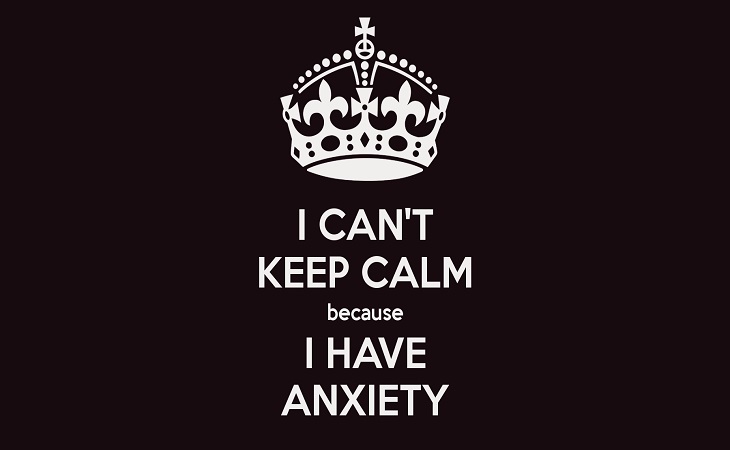
#5. Quoting “Just Keep Calm and Carry On”
Myth:
It’s helpful to tell someone who is battling with anxiety to “calm down” and “relax”.
Reality check:
No, people who bear with anxiety disorders do not sip their coffee out of Keep Calm and Carry On mugs because they have anxiety. And your kind words to “soothe their nerves” isn’t exactly helpful either.
Okay, telling people who have anxiety to keep calm and relax is akin to telling someone with a broken leg to just get it together and run a race – it just ain’t gonna happen, it’s preposterous! Why? Because you’re not exactly breaking a 911-news when you suggest to them that their fears may be irrational.
People with anxiety are very well aware with the fact that many of their fears are irrational and illogical. Wakey-wakey, that’s what makes it a mental health disorder rather than a case of disorientation – anxiety sufferers sensibly know that their fears have no roots in reality, it’s just that their bodies and mind still react as if they did.
Here are four things NOT to say to someone with an anxiety disorder.
#mentalillnessfeelslike: “I always worry too much about the future and the possibility of disappointing others, it’s killing me inside”.
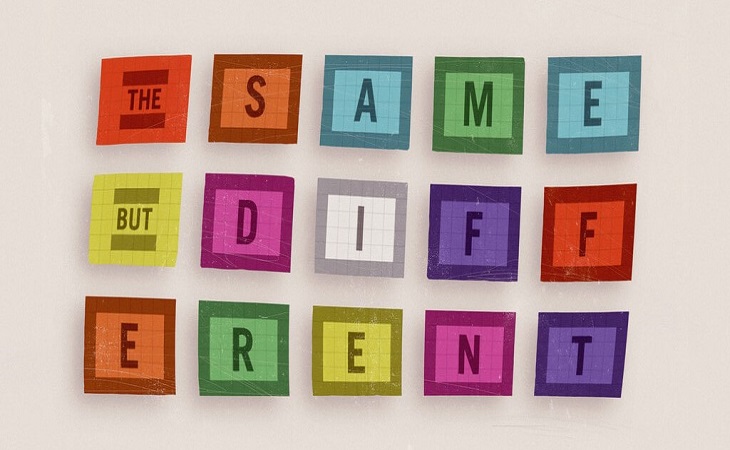
#6. Hold on, anxiety is depression. No?
Myth:
Anxiety, depression – they are the same. If you’re anxious, you’re also most likely depressed.
Reality check:
Depression and anxiety do share intertwined symptoms and can often cause one another; depression can cause anxiety while having anxiety can lead on to depression.
However, while those with anxiety often find themselves feeling as if something bad might happen and spend their days overwhelmed with worry thoughts, those with depression tend to embrace a hopeless view towards the future, coupled with a certainty of future negative emotions as well as possible suicidal thoughts.
Good news is? Both are also incredibly treatable, which have proven to work through years and years of really clever people conducting research. Research has now churned out ample ways to ensure that you’re able to control and even cure both anxiety and depression, provided you make the commitment to improve your mental health in the long run.
#mentalillnessfeelslike: “My mind and body are always on high alert for no apparent reason. It’s like the worst-case scenario for any situation is the most likely one”.


#7. Gotcha! How can I make their days better?
Myth:
Spam your anxious loved ones non-stop reassurance to help them cope.
Reality check:
Even if your heart is in the right place, reassurance probably won’t do much to ease down an anxious person’s cranium. But fret not, there are heaps of ways you can offer to help someone dealing with the condition.
- Be there for them – be it staying on the line until they’ve worked through their symptoms or going over to keep them company.
- Get them to do something physical – be it a brisk walk, climbing up and down the stairs or doing some jumping jacks. These give their body a way to physically burn up some of its excess energy.
- Encourage distraction – be it an adult colouring book, knitting/crocheting or drawing. Repetitive activities yield a calming effect that is similar to meditation.
- Pick up deep breathing skills and pass it on to them.
- Get them to write down their thoughts onto paper – be it a to-do list or writing a journal, this simple action goes a long way in helping them to organise their thoughts when their mind is racing.
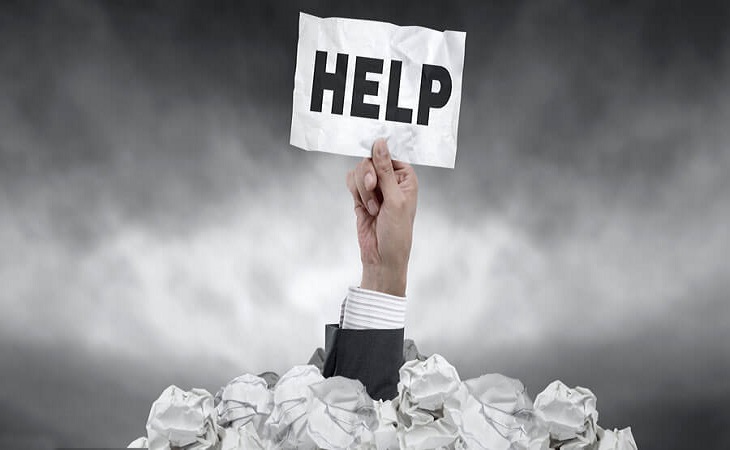
MOST IMPORTANTLY:
Urge/plead/drag them to seek for professional help. From Agape Counselling Centre, The Befrienders to The Peace Clinic, here’s a comprehensive directory of counselling services.
It’s about time we demystify mental health, to shatter the stigma revolving around it and to acknowledge the toll of neglecting mental illness. After all, our body doesn’t whisper, “It’s alright for you to be caught with flu but it’s not okay for you to be anxious”. Our body just feels bad in either case!
As we educate ourselves more about anxiety, we’re not only in an infinitely better stance to be a crying shoulder to a loved one who is suffering, we’re also destigmatising the disorder for them, and all other sufferers past, present and future.





